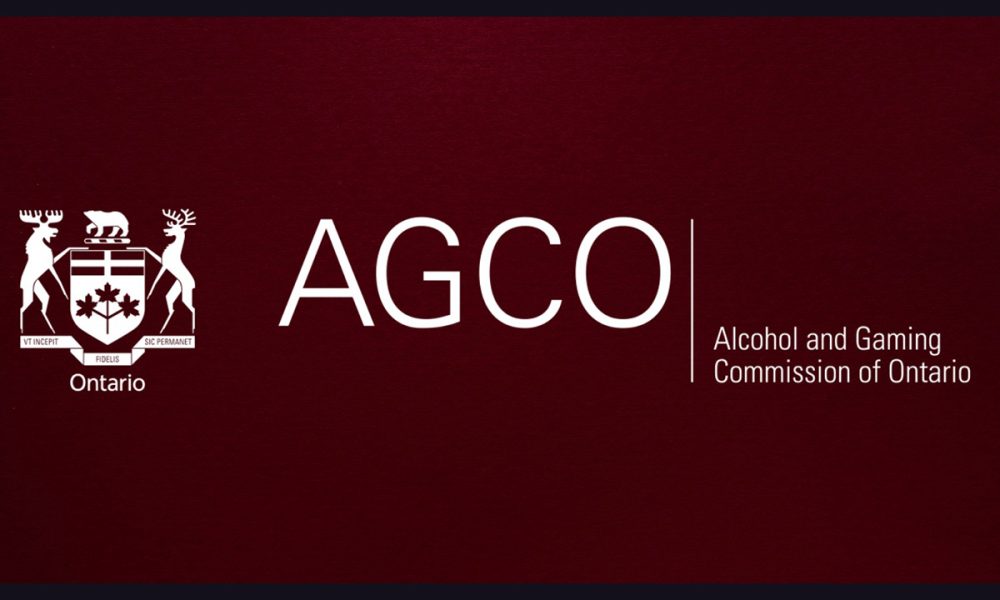

Canada
What You Need to Know About Gambling and Your 2021 Taxes
The deadline for filing 2021 federal tax returns looms on April 18 this year and for gamblers, it’s an occasion to be reminded of how the tax code addresses their gaming activity. Generally speaking, that’s not too kindly.
The bottom line is simple and stern. As a rule, all income from gambling — including real money online casino play — must be reported eventually on Line 8 of the familiar Form 1040 (along with inclusion on Schedule 1).
To some, it may come as a surprise that gambling income is reported as a gross figure and not a net result. That stands in contrast to, say, capital gains or losses realized in stock transactions, which are reported on Line 7 of the Form 1040 (usually, along with a Schedule D).
In plain English and by example what that means is this: If a taxpayer wins $500 playing the slots in a casino on Monday and then loses $800 playing the slots on Tuesday, the taxpayer is required to report the $500 win on his Form 1040 on Line 8. The $800 loss would be accounted for on Schedule A (Itemized Deductions) — but there are caveats.
The first may be familiar to taxpayers who gamble. Reported gambling losses cannot exceed gambling wins so in the above example, the taxpayer would have an allowable deduction of just $500 for net zero result (the gamble eats the excess $300 loss). But then there’s another issue.
The taxpayer gets to account for gambling losses only if he/she itemizes deductions on Schedule A. And as a result of the 2017 tax revision, the allowance for the standard deduction was raised to a point where it doesn’t make financial sense for the vast majority of taxpayers to itemize their deductions.
What that means for many taxpayers who gamble relatively modestly is that they have no opportunity to deduct any gambling losses. So, the gaming “win” stands alone as income even if the aggregate gambling activity was a net loss.
As an aside, the standard deduction for married couples filing a joint return for tax year 2021 is $25,100. For single taxpayers and married individuals filing separately, the standard deduction is $12,550. For heads of households, the standard deduction is $18,800.
The impacts of gross gambling income on line 8 may be subtle but can be significant. For instance, that amount gets carried down to Line 11, adjusted gross income, which can affect a range of tax circumstances, such as how much of the taxpayer’s Social Security benefits are taxable.
FUNDAMENTAL TAX RULES FOR GAMBLERS
- Taxpayers who gamble should remember that all gambling winnings must be reported as income regardless of whether the operator issues documentation, such as a W-2G or a Form 1099.
- Unfortunately, gamblers cannot “net” their winnings and losses when reporting gambling income. Gambling income is usually reported on Schedule 1 and then carried over to Form 1040, Line 8.
- Gambling losses are accounted for on Schedule A, Itemized Deductions, and taxpayers must itemize to get the benefit of a gambling loss deduction. However, taxpayers have to choose between itemizing deductions or taking the standard deduction.
- If gambling losses are taken as a deduction, they cannot exceed the amount of gambling wins.
- Win or lose, taxpayers should keep a journal of their gambling activity. They should note where, when, what games were played, and how much was won or lost. Taxpayers should also keep any evidence of wagering activity, losses included.
- State taxes may also be due on gambling winnings and rules vary from state to state. Gamblers should familiarize themselves with their state’s tax policies on gambling income.
OTHER THINGS TO KEEP IN MIND
The proliferation of gambling, both bricks-and-mortar and on the internet, has created complications for taxpayers that should be addressed by a tax professional but there are some things taxpayers should keep in mind.
As mentioned earlier, keeping a journal of gambling activity be part of your record-keeping.
Remember, all gambling winnings are reportable even if a gambling operator doesn’t issue paperwork, often a W-2G or a 1099-MISC or a 1099-K.
And speaking of W-2Gs, here are the occasions when the Internal Revenue Service says a W-2G should be issued by the gambling operator:
- 1. The winnings (not reduced by the wager) are $1,200 or more from a bingo game or slot machine;
- 2. The winnings (reduced by the wager) are $1,500 or more from a Keno game;
- 3. The winnings (reduced by the wager or buy-in) are more than $5,000 from a poker tournament;
- 4. The winnings (except winnings from bingo, slot machines, keno, and poker tournaments) reduced, at the option of the payer, by the wager are:
- a. $600 or more, and
- b. at least 300 times the amount of the wager; or
- 5. The winnings are subject to federal income tax withholding (either regular gambling withholding or backup withholding).
What may irritate taxpayers who gamble is how gambling activity is treated as opposed to something like day-trading stocks. In the latter case, which also involves substantial risk-taking, the stock day-trader gets to net losses against gains without having to choose between itemizing deductions and taking the standard deduction.
UNFAIRNESS TO GAMBLERS
The unfairness to taxpayers who gamble, particularly those who play at modest levels, was noted by the American Gaming Association, the trade group that represents the gambling industry, when the 2017 tax code was being revised.
“Under such a higher standard deduction, small and mid-level slot machine players may not be able to itemize their deductions, even with their gaming losses, and hence may not be able to offset gaming wins reported as income with the full amount of their gaming losses,” the AGA said in a letter to Capitol Hill.
“AGA strongly recommends, as a matter of tax simplification, that gaming players should be permitted to subtract gaming losses from gaming winnings in order to compute their taxable net gaming income for purposes of reporting adjusted gross income, without being required to itemize their deductions.”
Unfortunately for gamblers, that recommendation was not taken by the Congress.
For years, the AGA has been trying to get the threshold for issuing W-2Gs raised from $1,200 to $5,000 without any luck. However, early in March, the Congressional Gaming Caucus advanced an effort to raise the slot tax threshold to $5,000 with bipartisan legislation and also provide a mechanism for future increases based on inflation. The current $1,200 slot tax threshold has not been adjusted for inflation since 1977 and, since then, the instances of $1,200 W-2Gs has skyrocketed.
DON’T FORGET STATE TAXES
In addition to concerning themselves with federal taxes, gamblers need to deal with state income tax obligations. Some states allow deductions for losses, some do not. Some states allow for losses and wins to be netted, most do not.
Michigan, for example, changed its tax laws recently to allow for gambling loss deductions where there are winnings. Mississippi, meanwhile, has its 3% tax where the gaming establishment withholds a 3% “nonrefundable” tax at the time a W-2G-level jackpot is hit regardless of whether the winner is a state resident.
Casino customers from outside the country get separate treatment. In many cases, the United States has tax treaties with other countries that dictate how non-U.S. gamblers are treated from a tax perspective. For instance, in the United Kingdom, gambling winnings are not taxed and the U.S. tax treaty with the UK means that U.S. taxes are not withheld from those gambling customers.
AGLC
Casino ATM Scam in Edmonton Reveals Money Laundering and Drug Links

Law enforcement in Alberta continues to search for the last suspect in a sophisticated fraud operation that targeted ATMs in Edmonton-area casinos and resulted in over CAD 1 million ($720,487) in losses throughout Western Canada.
The Royal Canadian Mounted Police (RCMP) has confirmed that Hisham Ismaeel, 28, remains at large with a province-wide warrant for his arrest. He faces charges of fraud exceeding $5000 and possessing proceeds of crime. Police have already arrested four other men linked to the scheme. Investigators describe the operation as a well-planned effort to exploit financial systems and clean dirty money.
The accused, Elliot Miao, 42, Van Bau Ta, 39, Hassan Jaafar Haydar Ahmad, 37, and Dennis Jones, 42, showed up in the Alberta Court of Justice last week. They face charges from fraud and money laundering to owning criminal property. Miao also has a narcotics trafficking charge after police found cocaine when they searched with warrants.
Investigators claim the group made coordinated withdrawals at several casino ATMs, timing their transactions to avoid getting caught. This action messed up ATM networks in the area and showed flaws in the systems that banks and casinos use to stop misuse.
The RCMP Federal Policing Northwest Region led an investigation that involved six search warrants in Edmonton. The Edmonton Police Service, the Financial Transactions and Reports Analysis Centre of Canada (FINTRAC), Alberta Gaming, Liquor and Cannabis (AGLC), and several banks supported this effort. Officials said the case shows how teamwork between public agencies and the private sector plays a key role in combating modern financial crime.
AGLC representatives pointed out that casino operators in the province must follow strict reporting and surveillance rules under Canada’s anti-money laundering laws. The specific casinos affected remain unnamed, but the Edmonton region has seven licensed facilities. AGLC said its policies helped spot problems and backed the RCMP’s investigation.
Compliance experts say this fraud shows how criminals change their methods to take advantage of weak spots in reporting limits and transaction checks. They claim that casinos, which deal with lots of cash, are still easy targets unless they keep improving their detection systems and teach their front-line workers to notice coordinated actions like several big withdrawals happening one after another.
For now, the case highlights both the money and crime aspects of casino-related fraud. Besides the million-dollar losses, finding drugs during the raids points to a bigger criminal operation where financial crimes and drug dealing overlap.
The post Casino ATM Scam in Edmonton Reveals Money Laundering and Drug Links appeared first on Gaming and Gambling Industry in the Americas.
Bragg Gaming
Bragg Confirms Cyber Attack – Hackers Access Internal IT Systems

Bragg Gaming Group, a leading online gaming technology provider, has confirmed a major cybersecurity incident that compromised its internal IT infrastructure in the early hours of Saturday, August 16, 2025.
The company detected unauthorized intrusion attempts that successfully breached its internal network, triggering an immediate and comprehensive incident response.
Key Takeaways
-
Bragg Gaming Group experienced a cybersecurity breach involving access to internal IT systems.
-
No customer personal data or payment information appears to have been compromised.
-
The company has enacted full containment and investigation protocols.
Details of the Breach
According to a preliminary forensic analysis by Bragg’s internal security team, the attack was a targeted breach aimed at the company’s internal computer environment. While the exact method of intrusion is still under investigation, early indicators suggest a sophisticated exploit of internal network vulnerabilities.
Fortunately, the company’s customer-facing systems, including sensitive user data and financial information, appear to have been unaffected. Bragg’s existing encryption protocols and access control systems successfully prevented the attackers from accessing customer information.
Immediate Response Measures
In response to the breach, Bragg launched a multi-tiered containment strategy, including:
-
Network Segmentation to isolate affected systems
-
Enhanced Monitoring of data flows across its Remote Games Server (RGS) platform
-
Security Audits of critical infrastructure, including the Bragg Hub and PAM systems
-
Engagement of Independent Cybersecurity Experts to assist in incident analysis and system hardening
Bragg’s Security Operations Center has also elevated its alert level, initiating 24/7 monitoring across all server clusters and network endpoints. In addition, company-wide penetration testing is now underway to proactively identify any residual vulnerabilities.
Business Continuity Maintained
Despite the severity of the breach, Bragg reports that its operations remain unaffected. All gaming services, including iCasino and sportsbook offerings across regulated markets, continue to function without disruption.
“While this incident is deeply concerning, we are confident in the rapid and thorough response initiated by our team,” a company spokesperson stated. “We remain committed to protecting our infrastructure, our partners, and most importantly, our players.”
Looking Ahead
As part of its response, Bragg has also launched mandatory security awareness training for all employees to reinforce best practices and prevent future incidents.
Cybersecurity analysts will continue working with Bragg to determine the full scope of the attack, improve system resilience, and maintain the trust of its users and stakeholders.
Bragg’s handling of the incident highlights both the evolving nature of cybersecurity threats and the importance of robust, responsive defense systems in the digital gaming sector.
Source: cybersecuritynews.com
The post Bragg Confirms Cyber Attack – Hackers Access Internal IT Systems appeared first on Gaming and Gambling Industry in the Americas.
AGCO
AGCO Removes Cap on Seller Commission for Charitable Lottery Products

The Alcohol and Gaming Commission of Ontario (AGCO) has updated several lottery policies to remove the cap on seller commission for Paper Raffles and Media Bingo, along with removing the prohibition on Catch the Ace paper lotteries, to align with other charitable lottery products.
Licensed charities may now negotiate commissions directly with sellers and determine commissions, provided they are reasonable and tied to the cost of service provided by the seller.
These updates further the AGCO’s commitment to adopt an outcomes-based regulatory approach and reduce burden for the charitable gaming sector. Local charitable organizations will have greater flexibility to make decisions that best serve their fundraising objectives.
Important Reminders
• Charities must still receive approval for other expenses incurred under their licence and retain receipts for seller commission paid.
• Licensing authorities will not require documentation to be submitted as part of the application process, however, charities are still subject to audit to determine compliance.
• Charities are reminded of their legal requirement to meet their obligations under the Criminal Code and with respect to conducting and managing a charitable gaming scheme.
• As with all licensed charitable lottery events, charities must take the necessary steps to ensure that they are conducting and managing the lottery event within Ontario.
For charitable gaming-related inquiries, email an AGCO Eligibility Officer at [email protected] or call AGCO Customer Service at 1-800-522-2876, Monday to Friday from 8:30 a.m. to 5 p.m.
The post AGCO Removes Cap on Seller Commission for Charitable Lottery Products appeared first on Gaming and Gambling Industry in the Americas.
-

 gaming3 years ago
gaming3 years agoODIN by 4Players: Immersive, state-of-the-art in-game audio launches into the next generation of gaming
-
EEG iGaming Directory8 years ago
iSoftBet continues to grow with new release Forest Mania
-
News7 years ago
Softbroke collaborates with Asia Live Tech for the expansion of the service line in the igaming market
-
News7 years ago
Super Bowl LIII: NFL Fans Can Bet on the #1 Sportsbook Review Site Betting-Super-Bowl.com, Providing Free Unbiased and Trusted News, Picks and Predictions
-
iGaming Industry8 years ago
Rick Meitzler appointed to the Indian Gaming Magazine Advisory Board for 2018
-
News7 years ago
REVEALED: Top eSports players set to earn $3.2 million in 2019
-
iGaming Industry8 years ago
French Senator raises Loot Boxes to France’s Gambling Regulator
-
News7 years ago
Exclusive Interview with Miklos Handa (Founder of the email marketing solutions, “MailMike.net”), speaker at Vienna International Gaming Expo 2018







